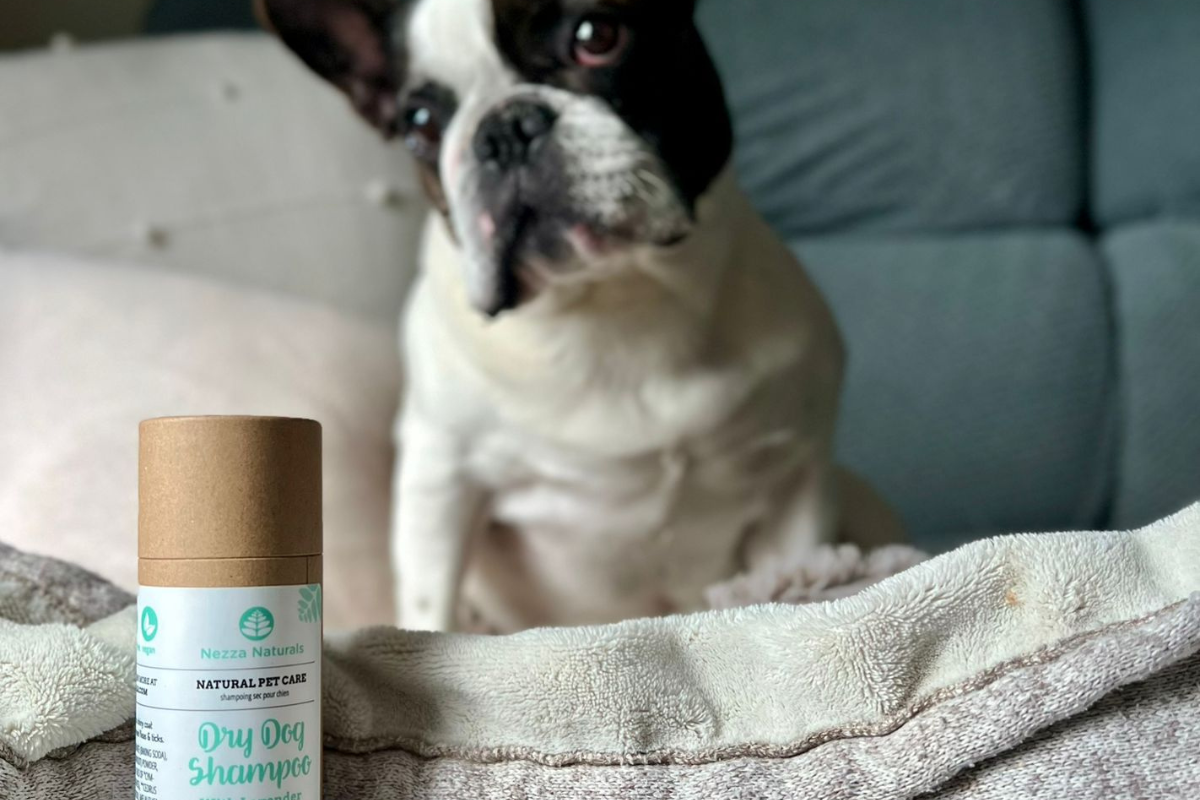At Nezza Naturals, we love our pets as much as you do! Essential oils can provide natural solutions for both humans and animals, but it's important to understand the unique sensitivities that pets have. Here’s what you need to know to keep your furry friends safe while enjoying the benefits of essential oils:
Essential Oils to Avoid for Pets
Some essential oils can be harmful to animals, particularly when used in high concentrations or improperly. Cats and dogs metabolize substances differently than humans, so what’s safe for us may not be for them. Always avoid using these essential oils around pets:
- Tea Tree (Melaleuca)
- Eucalyptus
- Peppermint
- Citrus Oils (Lemon, Orange, Lime, etc.)
- Pine
- Ylang-Ylang
- Wintergreen
- Clove
Cats, in particular, are very sensitive to many oils due to their liver’s inability to process certain compounds.
Safe Essential Oils for Pets
While many oils should be used with caution, there are a few that are considered safer for pets in diluted forms. These oils can be beneficial in moderation:
- Lavender: Known for its calming properties, it can be helpful for pets dealing with anxiety or restlessness.
- Chamomile: A gentle oil that can soothe irritation and promote relaxation.
- Frankincense: This oil is often used for its anti-inflammatory properties and is generally safe for both cats and dogs.
However, always dilute essential oils heavily before using them around your pets or applying them topically (only under veterinarian advice).

Safe Usage Guidelines
When using essential oils in a home with pets, follow these safety guidelines to protect their well-being:
- Dilution is Key: Always dilute essential oils before using them in areas accessible to your pet. Diffusing oils can disperse them into the air more gently.
- Provide Ventilation: Ensure that the space where oils are being diffused is well-ventilated and that your pet can leave the room if desired.
- Monitor Behavior: If your pet seems uncomfortable or shows signs of distress—like excessive drooling, lethargy, vomiting, or sneezing—stop using the oil immediately.
- Topical Use: Never apply essential oils directly onto your pet unless advised by a vet. If an oil is safe for your pet’s skin, it will likely need to be diluted with a carrier oil to avoid irritation.
- Storage: Store your essential oils out of reach of pets to prevent accidental ingestion, which could be dangerous.
Consult a Veterinarian
Before introducing essential oils into your pet care routine, consult your veterinarian—especially if your pet has underlying health conditions. They can guide you on the safe use of oils for your specific pet’s needs.
When using essential oils around dogs and cats, it’s crucial to know which ones are safe and how to use them properly. While many oils are harmful to pets, some can be used safely in small, diluted amounts. Below are essential oils generally considered safe for dogs and cats:
Safe Essential Oils for Dogs:
- Lavender: Known for its calming effects, lavender is often used to reduce stress and anxiety in dogs.
- Chamomile (Roman Chamomile): Soothes skin irritations and has calming properties.
- Frankincense: May support a dog’s immune system and is considered safe for calming.
- Cedarwood: Can act as a natural insect repellent and has calming effects.
- Myrrh: Used for its antibacterial and antifungal properties, often for minor skin concerns.
- Ginger: Helps with digestive issues and nausea in dogs.
- Sweet Marjoram: Known for its muscle-relaxing properties.
Safe Essential Oils for Cats:
Cats are more sensitive to essential oils due to their unique metabolic system, particularly their inability to metabolize certain compounds. Therefore, always use essential oils for cats with extreme caution and in heavily diluted forms.
- Lavender: Can be used to calm anxiety and stress in cats.
- Frankincense: Often used for calming and anti-inflammatory benefits.
- Cedarwood: Helps repel fleas and is considered gentler on cats.
- Helichrysum: Known for its soothing and regenerative properties for the skin.
- Chamomile (Roman Chamomile): Helps reduce anxiety and has skin-soothing benefits.
Important Guidelines for Use:
- Dilution is Key: Essential oils should always be heavily diluted.
- Diffusion: When diffusing essential oils, ensure the room is well-ventilated, and allow your pet the option to leave the room.
- Avoid Topical Application: Unless advised by a veterinarian, avoid applying essential oils directly on your pet’s fur or skin.
Always consult a veterinarian before introducing any essential oils to your pet’s environment or routine, especially for cats, as they are highly sensitive to many oils that are safe for humans or dogs.



Leave a comment